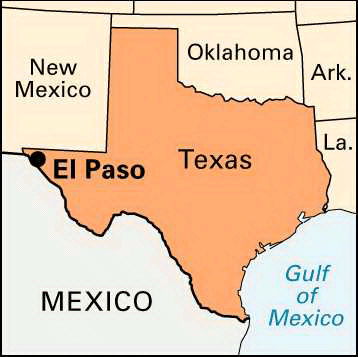 Less than a decade ago, AT&T was one of El Paso’s largest private employers, with 2,400 employees. Next month, it will be a shadow of its former self with fewer than 500 local workers after a series of layoffs and call center closures.
Less than a decade ago, AT&T was one of El Paso’s largest private employers, with 2,400 employees. Next month, it will be a shadow of its former self with fewer than 500 local workers after a series of layoffs and call center closures.
AT&T is planning to close its East El Paso office in November, giving 278 employees the option of leaving or relocating to San Antonio, Missouri, or Florida to remain employed by AT&T.
AT&T used to employ thousands of workers in its El Paso call centers and technical facilities. But much of that work is now being shifted to third-party contractors and offshore call centers overseas.
Since 2011, AT&T has eliminated 12,000 call center jobs in the United States, closing and downsizing call centers across the country, according to the Communications Workers of America.
In 2006, AT&T closed a major call center in Massachusetts, despite receiving generous tax benefits from the local and state government, and offered to relocate those employees to the same call centers in El Paso it is closing now.
In 2015, AT&T demanded El Paso and the state of Texas triple their $50 million annual tax break or else they would shift spending elsewhere. It appears tax abatements ultimately had little effect on AT&T’s spending decisions in the western Texas city.
 The union reports the annual salaries for those jobs ranged from $32,000 to $65,000 per year, plus commissions and health and retirement benefits. Offshore customer care centers pay a fraction of those salaries and many third-party contractors do not pay benefits because they designate many employees as part-time workers.
The union reports the annual salaries for those jobs ranged from $32,000 to $65,000 per year, plus commissions and health and retirement benefits. Offshore customer care centers pay a fraction of those salaries and many third-party contractors do not pay benefits because they designate many employees as part-time workers.
AT&T disputes it is increasing its offshore customer service workforce at the cost of American workers.
“It’s important to note that there is a job for every employee who is willing to relocate to the facilities where the work is being consolidated,” and they will get a relocation allowance if they have to move, Marty Richter, a spokesman for AT&T, told the El Paso Times.
“We’re adding people in many areas of our business where we’re seeing increased customer demand for products and services,” and reducing jobs in areas where work volumes are decreasing, “in part because of changing technology,” Richter added.
Most of the remaining 350 AT&T employees in El Paso will be staffing five retail stores in the area or working as technicians or back-office workers.
Few are expected to take AT&T’s offer to relocate to San Antonio, if only because there are signs AT&T will continue to cut back on its domestic call center operations and shift that work online or overseas.


 Subscribe
Subscribe
Hopefully they can get the free schooling offered for lost jobs that go overseas if they don’t take the relocation. I’m not sure how that works.